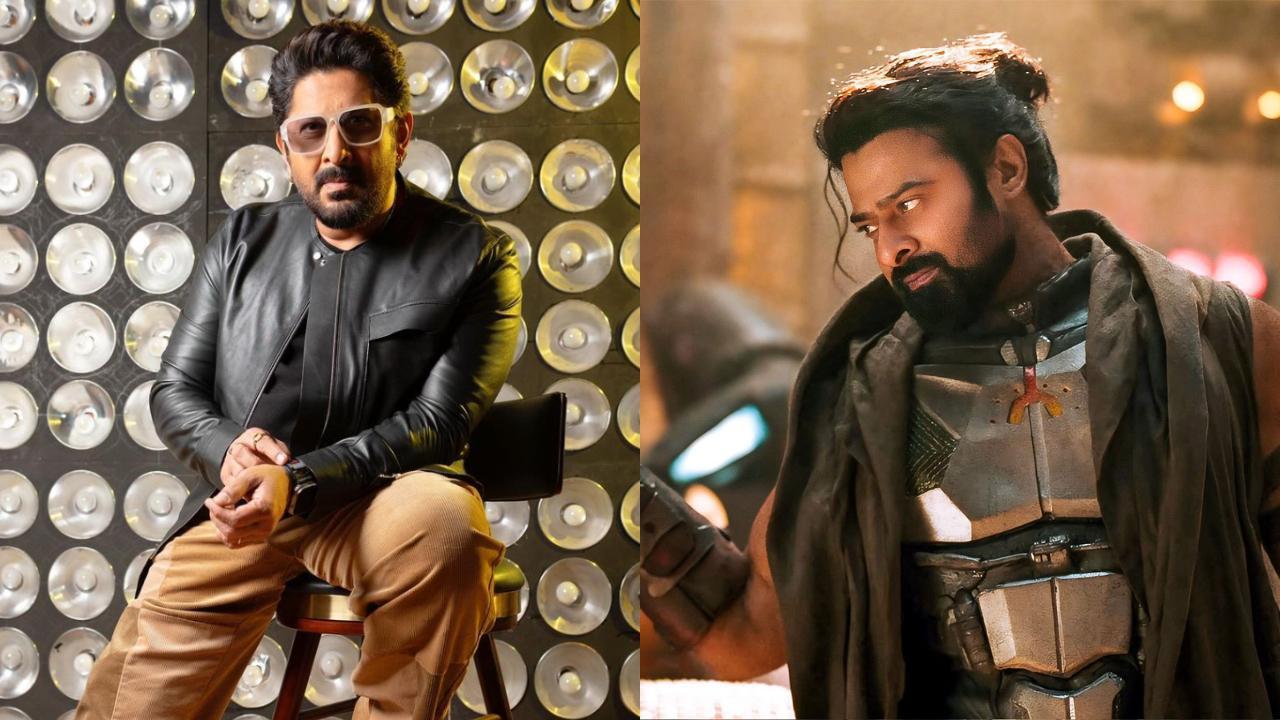
In a recent turn of events, Bollywood actor Arshad Warsi has come forward to clarify his previously inflammatory comments regarding Prabhas’s role in the forthcoming sci-fi thriller ‘Kalki 2898 AD.’ The Nag Ashwin-directed movie has generated buzz, but not all of it has been favorable. Warsi had earlier referred to the south Indian star’s character as resembling a “joker,” sparking an uproar among Prabhas’s loyal fanbase and causing considerable online backlash.
Weeks ago, Warsi did not hold back his opinions as he openly critiqued ‘Kalki 2898 AD.’ He expressed his disappointment primarily in the way Prabhas’s character was deployed in the film. According to Warsi, it was the portrayal, rather than Prabhas’s performance, that missed the mark. However, his choice of the word “joker” was contentious, leading to fans of Prabhas and members of the Telugu film industry, including actors like Nani and Sudheer Babu, expressing their displeasure.
Addressing the controversy at the IIFA Awards 2024 green carpet, Arshad Warsi clarified that his comments were targeted at the character design and not at Prabhas as an actor. “Everybody has their own point of view and people like to interpret noise. I spoke about the character, not the person. He is a brilliant actor and he has proved himself again and again, and we know about it. And, when we give a bad character to a good actor, it’s heartbreaking for the audience,” Warsi told PTI.
Warsi didn’t stop there. He took the opportunity to heap praise on Prabhas, calling him a “brilliant actor” and further elaborated that the backlash may have resulted from a misinterpretation of his comments. Warsi emphasized that his critique was meant for the creative choices made in depicting the character, not the talent portraying it.
Meanwhile, at the same event, Warsi expressed joy over the ongoing amalgamation of film industries across different linguistic boundaries in India. “The blurring of language barriers should have happened a long time ago.
. I really feel enraged when someone uses terms like Bollywood or Tollywood. I have corrected many people many times; I told them this is the Indian film industry,” he asserted. Warsi also added that for him, competition lies against global markets and not within regional industries. He dreams of directing a film one day where actors from diverse Indian industries would come together, stating, “Language is immaterial.”
The source of this controversy can be traced back to an episode of the “Unfiltered by Samdish” podcast where Warsi was asked to name the last bad film he watched. He named ‘Kalki 2898 AD,’ describing it as a “3D sci-fi spectacle.” Warsi did not mince words, expressing that while Amitabh Bachchan’s performance in the movie was commendable, Prabhas’s character’s treatment left much to be desired.
This critique did not sit well within the Telugu film fraternity, resulting in various negative reactions, including those from actors Nani, Sudheer Babu, and filmmaker Ajay Bhupathi. Notably, Nag Ashwin, the director of the film, also responded to the controversy, acknowledging that Warsi could have “chosen his words better but it’s ok.”
As the dust settled on Warsi’s remarks and subsequent clarification, the actor appeared hopeful that audiences and fans would understand his true intentions. He reiterated the importance of nuanced character representation in films and underscored that a well-acted but poorly scripted character could be disappointing for viewers.
Finally, reinforcing unity in the Indian film industry, Warsi remarked, “We all are in it together. My competition is with the rest of the world, it’s not with each other.” He continued to advocate for cooperative filmmaking across language barriers, envisioning a more integrated and diverse cinematic landscape for the country. His broadminded approach serves as a timely reminder of the evolving dynamics within the Indian film industry, emphasizing unity and inclusivity over regional distinctions.
The controversy surrounding ‘Kalki 2898 AD’ and Warsi’s comments may serve as a reflective moment for all stakeholders in the entertainment industry. It underscores the thin line between creative critique and personal insult and highlights the necessity for careful articulation when discussing roles and performances in an industry as passionate and diverse as India’s.












